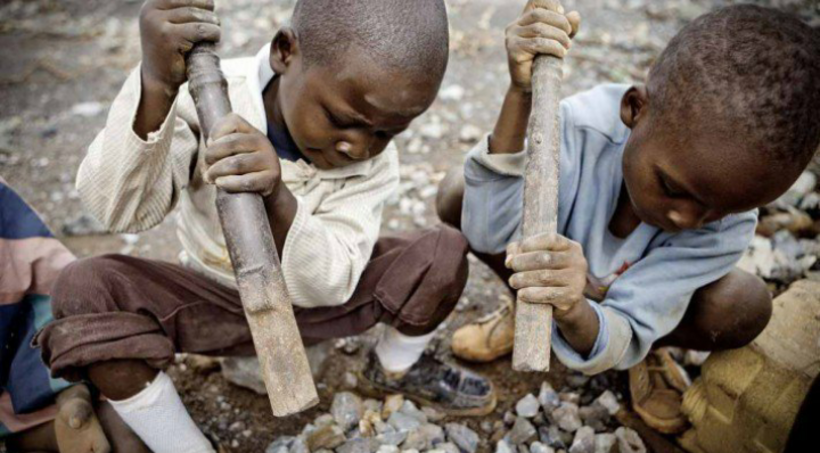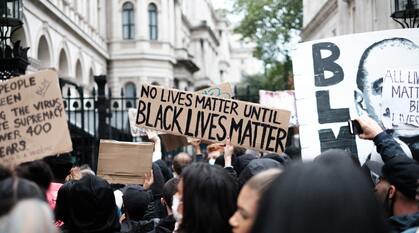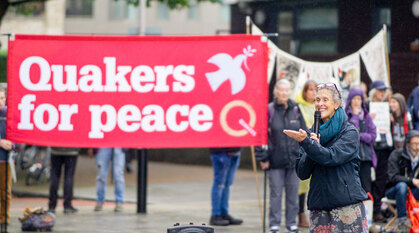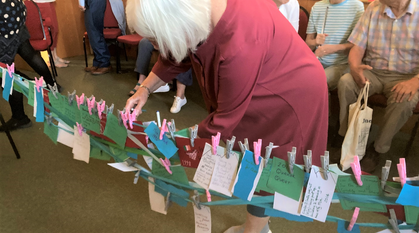What is climate justice?
What does justice have to do with climate campaigning? Rebecca Woo explores the connection, and shares how Quakers are taking action in this area.

First written about over two decades ago and enshrined in the Bali principles of climate justice (PDF) in 2002, the term climate justice is increasingly used when we talk about climate change and the environment. But what does it mean?
Climate justice means understanding that although the climate crisis affects us all, it does not affect us all equally. Wealthy people and countries are cushioned from the worst impacts of climate breakdown and the poorest are hardest hit.
Climate justice also means understanding that these unequal impacts did not come about by chance. Rich countries like the UK reached their current levels of wealth through hundreds of years of colonisation, enslavement and resource extraction. And this dispossession of land, rights and resources continues to this day, accelerated by the neoliberal capitalism that dominates our global economy.
An ecological debt
In our neo-colonial world, transnational corporations and finance institutions are the new colonisers. This might look like precious mineral mining in the Democratic Republic of Congo, where informal miners (including children) dig copper and cobalt out of the earth in unsafe and inhumane conditions for the production of batteries and electric vehicles. It might look like the debt crisis engulfing 31 countries, including Mozambique, which was devastated by cyclones Idai and Kenneth last year.
Both examples demonstrate a lack of justice and a clear imbalance in power relations – between the global north and the global south, and between transnational corporations and citizens. They also demonstrate why, in our search for ways to respond to climate breakdown, we must be vigilant about any patterns of oppression we might be repeating.
In this context, it is no wonder that the poorest are the hardest hit, nor that they have contributed the least to the climate crisis. Take, for example, the greenhouse gas emissions per capita of the United States of America (16.5 tonnes/year) as compared to Chad (0.1 tonnes/year).
And when we understand this history of appropriation and exploitation, we begin to understand why the Bali climate justice principles refer to an 'ecological debt' that industrialised nations and transnational corporations owe to the rest of the world.
A Quaker call to action
Quaker Peace & Social Witness made a decision in 2019 to focus the work of our Economics & Sustainability programme on climate justice, and the economic transformation needed to achieve it.
We have been working on climate and sustainability for some years, and Quakers have known for a long time that "the global economic system is posited on continued expansion and growth, and in its pursuit of growth it is often unjust, violent and destructive" (Minute 23, Britain Yearly Meeting 2011).
We cannot address our interconnecting crises of ecological breakdown, economic inequality and racism as though they were separate. By framing our calls to action on climate with a lens of justice (PDF), we ensure our actions start by addressing the social inequalities that lie at the root of the climate crisis.
Deep democracy
Covid-19 has laid bare these same inequalities in our economic system. That same lens of justice should apply to our response to and recovery from the pandemic.
In the words of Movement Generation (PDF), this means transforming our economy from one which is extractive, into one which is regenerative. It means shifting away from unsustainable production and consumption, to focusing on how we can care for and respect one another and the planet.
It means working together, rather than exploiting those with less power. And it means moving away from the militarism that has historically been used to protect the extractive economy, towards deep democracy that recognises the right of all communities to speak for themselves and inform how we respond to the climate crisis.
These are the types of shifts we talk about when we call for a just transition. Climate breakdown and inequality are tied up with global power relations, so any Green New Deal must be global and decolonial.
COP26: a key moment
The global climate change summit COP26, now postponed to 2021, will be a key moment for us to mobilise for climate justice and economic transformation. We will be producing resources to help guide your action (look out for updates on this in the Quaker faith in action newsletter) and we will also be working with other faith and NGO partners to get this message across.
There are plenty of false solutions to the climate crisis that continue to be mainstream – from the promotion of carbon trading, to reliance on unproven carbon capture and storage. These false solutions are dangerous and short-sighted in their failure to recognise the social and racial inequalities at the root of the climate crisis. Climate action without justice is not enough.
The final article of the Bali climate justice principles affirms the rights of "unborn generations to natural resources, a stable climate and a healthy planet". If we want to safeguard this right, social movements must come together to work for the economic transformation which climate justice requires.
Interested in exploring ideas around climate justice? Have a look at our directory of climate justice resources (PDF), which includes films, articles, books, podcasts and even some games!
Come along to the QPSW Summer Series to explore climate justice and more


